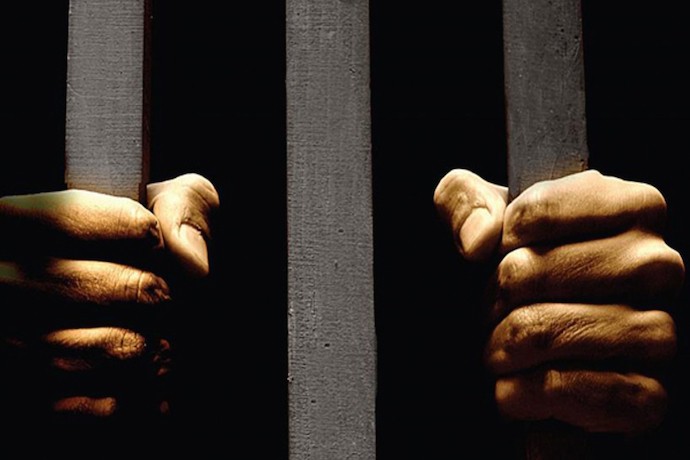In a recent article for The Cubit’s series on blame, RD associate editor Andrew Aghapour asks an important question: why do people more readily blame individuals than institutions? In Aghapour’s analysis, which draws on cognitive science, institutions are too big and abstract for us to blame easily. We’re better equipped to decipher the intentions, motivations, and actions of individuals.
But for many pressing social problems, Aghapour argues, structural factors may explain more than failures in individual choice. To borrow his central example, residential segregation in Ferguson was not just the result of individual decisions (“white flight”), but also of carefully engineered federal policies intended to prevent white and black people from living in the same places.
Aghapour wants us to get better at blaming institutions. When confronted with thorny social situations, he suggests that we first “scale up,” meaning that we situate individual actions within a broader institutional context. Second, he suggests that we “follow the crumbs,” taking into account all the evidence rather than focusing on individual character flaws.
Aghapour’s right: people are more likely to blame individuals than institutions. But people blame some individuals more readily than others. In particular, people in positions of privilege don’t experience the same type of personal condemnation that falls heavily on the disadvantaged. To put it bluntly, white people often already enjoy the benefits of Aghapour’s maxims (“scale up” and “follow the crumbs”), while black people do not.
A variety of social institutions facilitate this double standard, encouraging us to emphasize extenuating circumstances for whites in situations where we would blame people of color individually.
Consider the criminal justice system. Racial bias pervades every step of the legal process. It influences whether a defendant will be held in jail pending trial. It impacts the jury selection process (prosecutors regularly move to exclude African American jurors). And as legal scholar Michelle Alexander shows in The New Jim Crow, it even affects the way prosecutors assign blame to defendants. Alexander writes of the disproportionate number of incarcerated black and brown youth:
“A major reason for these disparities is unconscious and conscious racial biases infecting decision making. In the state of Washington, for example, a review of juvenile sentencing reports found that prosecutors routinely described black and white offenders differently. Blacks committed crimes because of internal personality flaws such as disrespect. Whites did so because of external conditions such as family conduct.”
In other words, prosecutors find it easier to blame black individuals than white individuals. They tend to emphasize the personal failings of the former while highlighting the mitigating social disadvantages experienced by the latter. White individuals are more likely to enjoy the benefit of the doubt that comes when someone focuses on institutional context, rather than blaming the individual.
This tendency to blame black individuals for committing crimes while absolving whites for the same acts is, in part, a product of the Progressive Era, the age of the Social Gospel. Urban reformers, religious and otherwise, attributed criminal activity among white workers and immigrants to the vagaries of industrial capitalism. In this view, their bad behavior was a product of their environment which could be corrected through benevolent social programming.
African Americans, on the other hand, were criminal by nature. Reformers cited crime statistics as objective evidence that unlike their white counterparts, black individuals were incapable of reform through charity and education. Such conclusions led to social welfare policy that largely excluded African Americans. As the progressive logic went, they wouldn’t benefit from welfare, anyway.
Historian Khalil Gibran Muhammad explains this history in his excellent book, The Condemnation of Blackness. As Muhammad’s title implies, the blaming of black individuals is actually based on judgments about African Americans at the collective level. Politicians, pundits, and pastors, white and black alike, consistently argue that the criminal behavior of black individuals is in part attributable to deficiencies in “black culture.” Crime would not be so high in black communities, they suggest, if African Americans properly valued marriage, family, and work.
By contrast, the financial crisis and economic downturn has not created a media frenzy about the inherent defects of “white culture.” When we do see critiques of Wall Street culture, they typically don’t focus on the whiteness of the individuals who participate in it. And successful prosecution of these individuals is rare and laborious.
Yes, we often should “scale up” and “follow the crumbs” when we seek the causes for a social problem. But we should also be aware that we tend to scale up differently depending on an individual’s identity and position in society, using the same process to exonerate some and condemn others.
Andrew Aghapour responds:
I could not agree more with this response. While we need to get better at blaming institutions, that’s only part of a larger need to remove racial bias from blaming, whether directed toward individuals or groups.
We can attribute a blameworthy act to a variety of forces: to insanity or rational calculation; to social influences or inherent criminality; to temporary desperation or moral bankruptcy. As Gaskill expertly argues, Americans blame asymmetrically. Black individuals are far more likely to be blamed for individual personal failings, while white individuals are the most likely beneficiaries of “scaling up” and “following the crumbs.”
Michael Schulson will make a similar argument in his own contribution later this week. After acts of mass public violence, Western media are far more likely to blame mental illness if the perpetrator is white, compared to other ethnicities. Westerners are also more likely to blame Islam for the violence of Muslims than they are to blame Christianity for the violence of Christians.
The way we blame says more about the in-group that we identify with than it does about the “other” at hand. This cuts across political lines; as a liberal I have found it easier to lay blame solely on monolithic institutions like Monsanto. This is flawed, essentialist thinking.
The othering of blame is likely informed by our psychological predispositions, but such behavior is neither biologically determined nor morally excusable. We are all obligated to continuously check the prejudices that inform our blaming, regardless of where we stand. We are especially obligated if we enjoy social privilege, because prejudices within dominant groups are much more likely to cause social harm.






